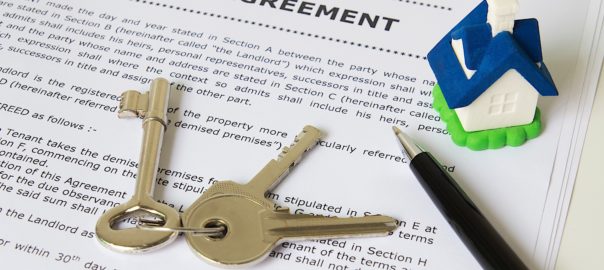Prospective Tenant Red Flags
By JD Esajian on June 14, 2019
The strength of your rental property is solely based on the quality of your tenants. Sure, numbers are always important, but everything starts and ends with your tenants. That is why it is critical to take your time and screen every tenant individually. Never let the threat of a vacancy or the desire of a tenant influence your decision. The minute you get lazy with your tenant due diligence you open the door for bad tenants. Just a few months into the lease you will realize your mistake and be forced to deal with the consequences ranging from late rent payments to property damage.
In most cases you can tell a lot about a tenant from the application and how they respond to your questions. There are usually a few warning signs that should push you elsewhere. Here are five tenant red flags that you should never ignore.
- Cancel Showing Appointment: It is a good exercise in real estate to put yourself in the shoes of the people around you. Thinking like a contractor, buyer or prospective tenant will give you some perspective on the situation. Think of how you would act and what you would do if you really wanted the rental. You would go out of your way to make sure you were available to see the property whenever there was a showing. If it was only shown a few times a week you would make sure you were there. If you had an individual showing you surely wouldn’t cancel. Of course, emergencies happen and there are always exceptions but for the most part a tenant that wants the property doesn’t cancel on short notice. You shouldn’t have to chase a prospective tenant or fit them into your schedule. If they really want the property they will do everything for it, and never cancel a showing.
- Scrutinize Entire Lease: There are a few different ways you can go with your lease. One way is to take a generic copy from the web and only make minor tweaks to it. The other is to have an attorney draft the lease with complicated and favorable language for you. The best option is probably somewhere in between. There is no question that any prospective tenant has the right to know what they are getting into with your property. However, there can be a point where it becomes more trouble than it is worth. A tenant that wants to break down the lease line by line and questions every section is a huge red flag. They are either looking for a crack in the lease they can use to their advantage or their actions are a sign of things to come. They are going to call you throughout the course of the lease and demand answers to every issue that arises with the property. If everything is equal, you should definitely look for an alternative.
- Ask To Have A Pet: You can run your property and dictate the lease any way you like. If you are against pets or smoking that is your call and should be clearly indicated on the lease. These are two of the items that you should let it be known will trigger instant eviction if caught. After explaining the severity and importance of not breaking these there should be little question as to your stance. If at that point your tenant still asks about certain pets or part time pet housing it should ring bells in your head. If they are asking about it that means they thought about it and if they thought about it they are probably planning on doing it. You don’t want to have to make periodic visits to the rental just to make sure they aren’t hiding a pet. You should be 100% confident that any items on the lease will not be broken to whoever you rent to.
- Negotiate Security Deposit: Every experienced renter understands the process. There is usually (hopefully) an application that must be completed, a second showing and it all goes well an exchange of a check for keys. If your tenant doesn’t have the full security deposit or tries to negotiate a reduced amount it is an indicator they may be struggling financially. This usually ripples over to the lease and you will be chasing the rent every month. Only in unique situations should you ever consider taking a reduced amount for security. Not only does this set a bad precedent, but you open yourself up to potential liability of something happens with the property.
- No References: If a tenant is currently renting you should be able to contact their existing landlord. Ending the lease on bad terms isn’t a red flag, but it should raise some questions. There are always two sides to every story, so you should be careful only believing the landlord. However, if they are telling you that collecting rent was a problem or they left the property a mess they have little reason to lie. Every tenant should have a few people you can call that will put in a good word for them. Even if it is a co-worker or family member they should put something on the application.
Finding the best possible tenant for your property is key to any lease. Spend a little extra time getting the right tenant and always keep your eyes open for potential red flags.